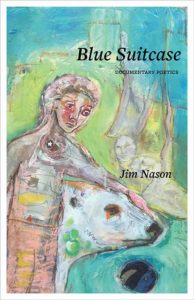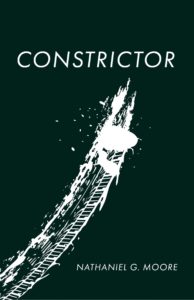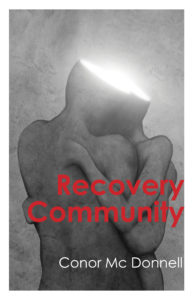b y Alisha Kaplan
With apologies to Jamaica Kincaid and Lillian Allen
Outline your story before you begin; make sure it has a coherent structure in the order of rising action, climax, falling action; never use the word structure — it is meaningless; think of it as relationship instead; don’t have too many characters; don’t confuse your reader; remember that you have an audience and be considerate of it; write from your experience; don’t be self-absorbed; after all, who knows you better than yourself; remember, you don’t really know yourself at all; ask yourself does it make sense; tie all loose ends in the plot; don’t feel the need to answer every question; never use the word plot; do you know what it means, because I have no clue;
— Collapse
think of it as change instead; never use the word society; who is society, exactly?; never, under any circumstances, split your infinitives; just because Shakespeare and John Donne did doesn’t mean you can; the crime of splitting infinitives was invented in the twentieth century by some foddy doddies with some sticks up their split asses; never think that because you’re a writer in university in the United States at the turn of the millennium you’re too good for punctuation; this is how to elegantly break the rules; this is how you quote according to MLA format; no, this is how you quote according to MLA format; never write in the first person; never listen to a professor who tells you not to write in the first person; they are an idiot; this is how you avoid saying “they” when referring to an individual; these — he/she, one, we — are all viable options; this is how you develop the low talent of bashing people; this is how you give criticism: first compliment, then rip apart; always give constructive criticism; this is how you be mean — writers cannot be nice people; I see a kindred spirit in the realm of darkness; remember, the physical world is your friend; don’t be too abstract; go home, have a revelation, and we’ll talk tomorrow; read Flannery O’Connor; read Saul Bellow; read my book; write every day; every day at breakfast read a new word from the dictionary; don’t write unnecessary things like what you ate for breakfast; give details like what you ate for breakfast; enlarge your vocabulary; don’t use pretentious words like profligacy; this is how you describe a character; this is how you tell us what’s in her purse; this is how you read between the lines; this is how you avoid using clichés, which reflect a mind too weak to think for itself; clichés are your enemy; never worry about shocking people or making enemies; soften your language, people might get offended; you are what you write; you can be anyone; this is how you become a man from China who tries to sell his eyes; this is how you become a sea nymph; this is how you become an editor; this is how you edit, always in the margins; this is how you become a writer; this is how you write lists — everyone loves to read lists; there is no such thing as writer’s block; this is how you get over writer’s block; this is how a story appears in your mind as if it spouted fully formed from the fountain of Mount Helicon; don’t make too many references to classical mythology; in fact, don’t make any references to classical mythology; Sisyphus is overdone and nobody cares about Leda; always look back to look forward, no one exists in a vacuum; see where your strongest writing is — that is where your story is; who do you think you are, beginning your memoirs at 22; get life experience; no, you will not make a living; write what you know; you can say the same thing in different ways — Jane Austen did it, Raja Rao did it, and Hemingway too; seriously, how many stories can you write about a depressed adolescent; I’m afraid you’re turning into a Nicholas Sparks; no, you are not the reincarnation of James Joyce; no, just because I don’t understand it doesn’t mean it’s brilliant; lose the adjectives, strengthen your verbs; peacefulness should not be a word; it’s just peace, for god’s sake; it’s toward; no it’s towards; write about this raisin; write about that, over there; write about your times; don’t write about Facebook or Twitter because it will date you and you will not be timeless and you will not be eternal; you’ve switched tenses again; there is no tension in your story; always have tension; to be honest, in your story nothing really happens.
Alisha Kaplan was the Editorial Intern at Mansfield Press this past summer. She lives in New York City and attends Columbia University.




























